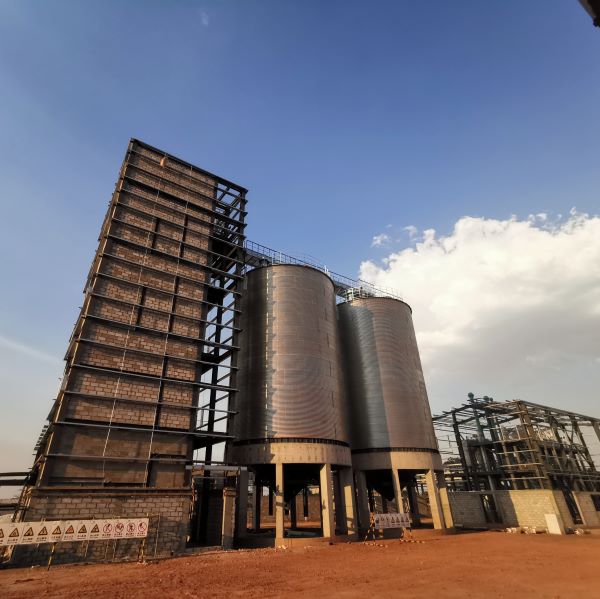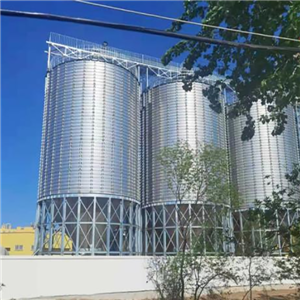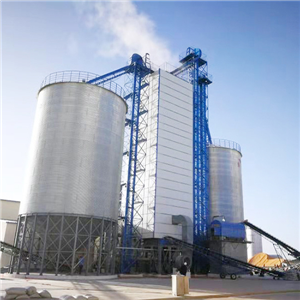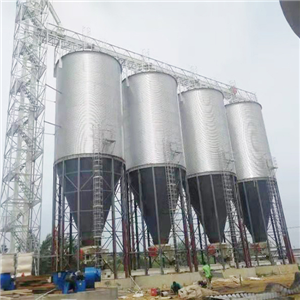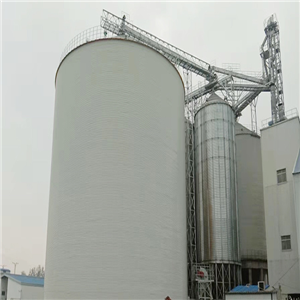The Impact of Material Selection on the Durability of Spiral Silos for Agricultural Use
11-03-2025
Spiral silos are specifically designed to store a wide range of agricultural commodities, such as grains and animal feed. The durability of these silos is of utmost importance as it directly impacts the quality of the stored items and the overall cost effectiveness of the storage system. The materials used in building spiral silos play a decisive role in determining their ability to endure the harsh agricultural environment, which typically involves exposure to moisture, chemicals from fertilizers and pesticides, and significant temperature variations.
Galvanized steel is one of the most prevalently used materials for spiral silos. Its popularity stems from the favorable balance it offers between cost and durability. The zinc coating on galvanized steel functions as a protective shield, safeguarding the steel from rusting. On numerous farms, galvanized steel spiral silos have demonstrated their reliability. With proper maintenance, they can last anywhere from 20 to 30 years. For instance, a wheat farm in the Midwest of the United States has been using galvanized steel spiral silos for over 20 years to store harvested wheat. Through regular inspections and basic maintenance tasks like repainting the exterior to preserve the zinc layer, these silos have remained in good condition, ensuring the secure storage of the wheat.
Stainless steel is another viable material option for spiral silos. It exhibits high resistance to corrosion, making it an ideal choice for storing sensitive agricultural products or in areas with high humidity levels or coastal environments where the risk of rust is elevated. Stainless steel spiral silos are often employed for storing high value crops such as organic grains or specialty seeds. Although stainless steel comes at a higher cost compared to galvanized steel, its long term durability and hygienic features can make it a cost effective alternative over time. A large scale organic farm in California utilizes stainless steel spiral silos to store its organic produce. The smooth interior surface of the stainless steel silos facilitates easy cleaning, minimizing the risk of contamination and ensuring the quality of the organic products.
Composite materials are increasingly being used in the construction of spiral silos. These materials combine the strength of traditional materials like steel with the benefits of modern polymers. Composite spiral silos are lightweight, which simplifies their transportation and installation. They also possess good insulation properties, helping to maintain a more stable temperature inside the silo and protecting the stored agricultural products from spoilage. Moreover, composite materials can be customized to meet specific requirements, such as resistance to certain chemicals. A dairy farm in New Zealand has installed composite spiral silos to store animal feed. These silos not only provide a long lasting storage solution but also contribute to reducing energy costs associated with maintaining the appropriate temperature for the feed.
Aluminum is also utilized in the construction of spiral silos, particularly in cases where portability is a key consideration. Aluminum spiral silos are lightweight and can be easily disassembled and relocated. They also have a natural resistance to corrosion to some degree. However, aluminum has its limitations. It is not as strong as steel, so it may not be suitable for large capacity silos or for storing heavy agricultural products. A small scale mobile poultry farm in Australia uses aluminum spiral silos to store chicken feed. These silos can be effortlessly transported when the farm moves to different grazing areas, offering a convenient storage solution for the mobile operation.
The surface treatment of the materials used in spiral silos significantly impacts their durability. Surface treatments like painting, galvanizing, or applying protective coatings can further enhance the materials' resistance to corrosion and wear. For example, a painted galvanized steel spiral silo will have an extra layer of protection against the elements, thereby extending its lifespan.
In conclusion, the selection of materials for spiral silos in agriculture is a crucial decision that has a direct bearing on their durability, performance, and cost effectiveness. Different materials come with their own sets of advantages and disadvantages. Farmers and agricultural businesses must take into account factors such as the type of products they store, the environmental conditions of their location, and their budget when choosing the material for their spiral silos. As technology continues to advance, new and improved materials are expected to emerge, further enhancing the durability and efficiency of spiral silos in the agricultural industry.
